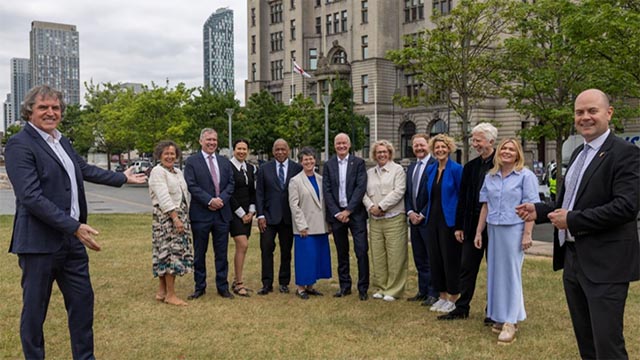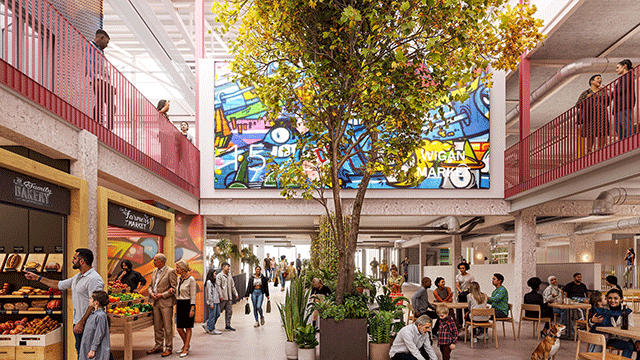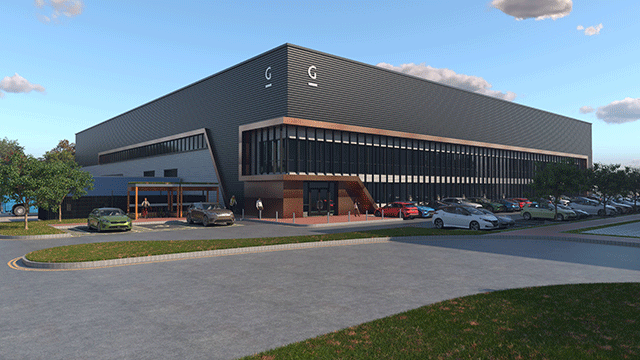The short road between Strand and The Savoy Hotel in London is the only public carriageway in Britain where one drives on the right. It is tempting to see the sale of The Savoy in April to a syndicate, led by Irish investor Derek Quinlan, as similarly unique, but this is far from the truth.
The sale of the hotel – alongside fellow London marques Claridge’s, The Berkeley and The Connaught – caught the imagination, both because of the speed of the transaction (six weeks) and the price achieved (£750m). But it is merely an eye-catching headline reflecting a larger trend.
Radical change
Six years before, Blackstone Group and Colony Capital had paid £520m for the group of hotels. The sale to Quinlan’s syndicate represented a profit of £170m, explaining why investors are increasingly keen to move into the market. This has brought, in turn, a radical change in the structure of the UK hotel industry. The days of the owner-occupier could be numbered.
Derek Rammage, managing director of CBRE Hotels, says: “Until four or five years ago, pretty much every hotel was owner-occupied. Five years ago, all of our top 20 clients would have been hotel companies and now there isn’t one. The owners could be banks or pension funds. We have seen a lot of deal activity over the past 12 months. It’s a cyclical business, and investors are happy to ride out the ups and downs.”
The downs, of course, were evident in the last recession, when the UK’s hotel sector was badly hit, and after 11 September, when it was again on the ropes. But many experts believe hard lessons have been learnt. Investors may take a cyclical approach, but financiers seek more certainty.
Philip Johnston, head of hotels at FPDSavills Commercial, says: “The hotel market 10 years on from the last economic downturn is underpinned by stronger fundamentals. The approach and appraisal of hotels by surveyors and lending by the banks is set against real cash flow and interest cover, with stress testing for vulnerability. Financiers are investing as the return on money provides cash flow and underlying asset value.”
Financiers have become tougher. They will still lend money, but very much on their own terms. Often, this means hotel owners guaranteeing returns.
Martin Armitstead, director of hotels at hotel consultancy group RH International, says: “In the four- or five-star sector, convincing people to invest is tough. There was a trend towards leases, but most hoteliers don’t like that. Financiers like a guarantee in case of a downturn.”
Hotel groups prepared to offer guarantees are the ones finding favour with the money men. As Mark Wynne-Smith, vice-president of Jones Lang LaSalle Hotels, says: “A group such as Radisson is willing to provide revenue guarantees. Those not willing to offer guarantees at the beginning of a contract will find it difficult to grow.”
Hotel groups, then, have had to adapt to a more rigorous approach from financiers, but large, quoted leisure groups have another concern – how to balance expansion with the provision of a decent return to shareholders. Selling off assets to provide a better deal for investors is an option they have to consider.
Patrick Grant, an associate at Gerald Eve, says: “The corporate guys are ruled by performance for shareholders. They can’t really afford to sell for less than things are worth, but they may have to. The big quoted groups have to get rid of their assets to improve their returns. The buyers will be the ones with flexibility who are not beholden to shareholders. These are the ones getting into bed with property companies.”
Traditional owners
Jones Lang LaSalle’s Wynne-Smith agrees. He says: “The UK market is divided into the traditional owner drivers and the quoted groups. The owner drivers are groups such as Paramount. They have aggressive expansion plans and are still buying hotels and increasing value, while the quoted groups are trying to realise assets to increase cash flow.”
Indeed Paramount Hotels – sold by Alchemy Partners to Dawnay Shore Hotels this summer for £215m – sets out its strategy as “acquiring under-funded, mismanaged properties and investing heavily in them”. Falling into this category is the Midland Hotel in Manchester, which it bought early this year for £36m.
In similarly acquisitive mood is Macdonald Hotels. Recent ticks on its shopping list include The Burlington Hotel in Birmingham, and it was one of the companies bidding to buy Queens Moat Houses, which has 32 UK hotels.
The shake up in ownership in the UK hotel market is further compounded by the trend towards the farming out of brands through franchising. Wynne-Smith says: “Franchising is likely to increase. A company like Jarvis Hotels is happy to operate hotels under other people’s franchise. It is comfortable being a pure operator. That is increasing, and I expect it to increase significantly in the future. It has been popular in the US for years. Something like 50% of hotels are branded in the US compared with about 20% in the UK. I can see this gap closing.”
Developer and operator
A recent example of this trend was the decision by BAA Lynton, the commercial property development arm of BAA, to appoint Arora Holdings as developer and operator of the new 600-room hotel to be built as part of the Terminal 5 development at Heathrow Airport.
Arora plans to operate the hotel as a Sofitel, having been granted a long-term franchise of that brand.
The budget end of the hotel market is likely to remain strong – it suffered the least from the industry’s decline post 9/11. Its continued popularity can be gauged by the decision taken by Whitbread in July to buy the Premier Lodge chain of budget hotels from The Spirit Group for £505m. This means the pressure for constant improvement falls on the four- and five-star end of the market. The operators of these hotels need to get it right in terms of location and design.
Armitstead at RH International says that, in the capital at least, the most recent trend is to build outside the traditional battleground. “The market used to be concentrated in the West End, but now there are more openings in the City and Docklands,” he says. On the design front, the independent operators have had a large impact on the thinking of four- and five-star hotel owners.
An example of this is the four-star Radisson Hotel in Liverpool, which opened in February. With its 10-storey atrium, minimalist lobby and modernist furniture, the Aedas Architects’-designed scheme could easily be mistaken for a boutique hotel.
|
|
|
The most recent data, provided by accountancy firm PKF, shows that room occupancy rates and daily room yields are both up on a year ago. In June, hotels in London achieved a daily room yield of £94.62 compared with £82.69 in June 2003, while occupancy rates were up from 78.7% to 83.1%. Outside London, occupancy was up from 73% to 75.6%, and room yields up from £45.43 to £48.72 over the same period. Another positive indicator has been noted by Jones Lang LaSalle. Its research reveals that growth in RevPar (revenue per hotel room) was recorded in February this year – the first time in 14 consecutive months. |










